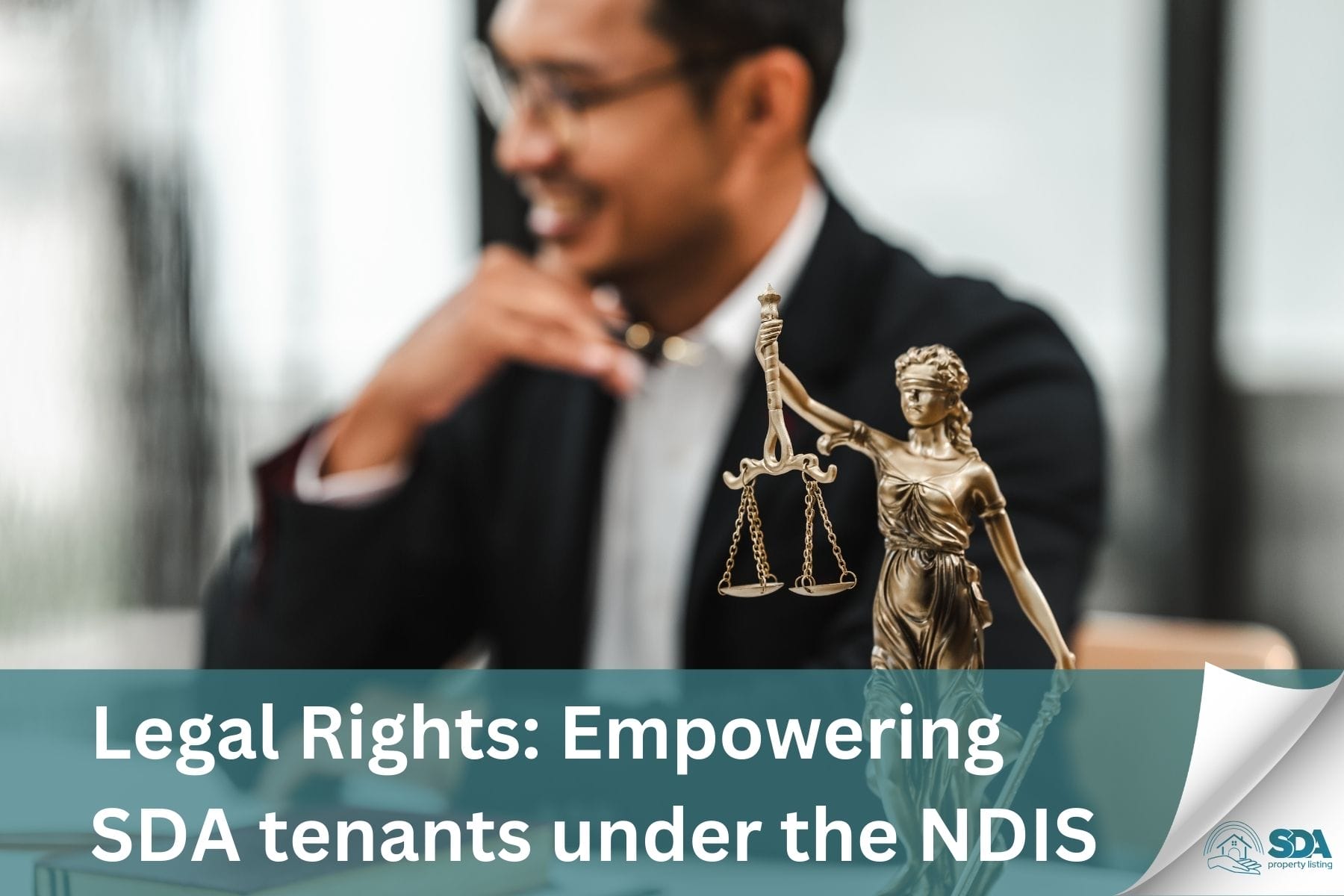
Legal Rights: Empowering SDA Tenants under the NDIS
Introduction
The NDIS or National Disability Insurance Scheme has improved the functionality of disability support in Australia. The NDIS provides individuals to have more control over their demands and choices over their requested or received services. SDA or Specialist Disability Accommodation is an aspect that offers high support needs to any NDIS candidate. It is vital to understand one’s legal rights as a SDA tenant which allows you to understand the standard of the received services. In this blog, we’ll deeply discuss SDA tenant rights and tenancy agreements for further knowledge.
What are SDA Tenant’s Rights?
These types of rights are created to protect individuals and guarantee that they will reside in an environment that is fair and respectful. These rights are included in many Acts and the intention of maintaining a set of rights for tenants is to offer a safe place and a service that respects all guidelines. Here are a few major rights you should be aware of:
- The Right to Privacy
Your privacy is regarded foremost. All landlords and providers are requested to respect a tenant’s privacy and personal space. Your landlord or service provider is allowed to enter your premises only by prior notice or by any specific clause mentioned by you.
- The Right to Fair Treatment
You are entitled to fair treatment which includes being freed from discrimination or abuse. This also includes living free of neglect, violence and exploitation. Tenants are freed from being judged regardless of their ethnicity and sexual orientation.
3.The Right of Choice
You have the complete right to choose your location depending on your liking. Your choice can be living in a suburb or the countryside, it will completely be up to you and you will never be forced to live in an environment out of your comfort zone. Likewise you possess the freedom to choose the individuals you live with based on your comfort.
What is a Tenancy Agreement?
A tenancy agreement is a contract that legally binds a property owner and a tenant. This document or “lease” outlines all terms and conditions of a tenancy which also includes rights and responsibilities of each party. It includes certain standard terms that are set out in the Residential Tenancies and Rooming Accommodation Act 2008 ( ). Additionally new terms will be included as per both parties preference.
Types of tenancy agreements
This Act contains clauses or terms that address to these types of agreements:
- General Tenancy Agreements
Agreements used when renting houses, units, apartments, townhouses or houseboats.
- Moveable Dwelling Agreements
Agreements used when renting a caravan or a moveable dwelling.
- Rooming Accommodation Agreements
Agreements used for boarding houses, off-campus student accommodations or any other rooming style dwellings.
What is Included in a Tenancy Agreement?
All tenancy agreements must include:
- Name and home address of both parties
- The start and end date of the agreement
- Guidelines of paying rent
- Amount due for rent payment
- Standard terms outlined under the Act
- Any special terms agreed by both parties
What should you look for in a Tenancy Agreement?
- Special Clauses in the agreement: Rules or clauses significantly change based on every relationship between a property owner/manager and a tenant. It is healthy to be cautious on any special causes mentioned in the contract by the landlord before signing it.
- Bills and rent payments: A tenant has to be keen on the utilities he/ she is responsible for. Some tenancies include utilities like water, electricity etc while some would not. To avoid future confusions, read through the contract and figure out the financial duties you will be responsible for during your tenancy.
- Subletting: Your contract has to clearly state that subletting is allowed or prohibited during the tenancy. Any unauthorised subletting can leave you with hefty fines or a lawsuit.
- Repairs and Decorating: Tenants should also be keen on who is responsible for repairs and maintenance. It is always advised to look through your contract the next time you want to redecorate your premises without the landlord’s approval.
- Giving Notice: Every tenancy agreement outlines how much notice you need to give if a tenant wishes to end the tenancy. You are advised to stick to the contract unless there’s a breach of clause or your landlord agrees to end the tenancy early to the date mentioned.
Conclusion
It is crucial to have knowledge about your legal rights as a tenant in SDA for living respectfully and safely.Moreover being aware of what must be mentioned in the tenancy agreement will allow you to advocate strongly on your behalf. Your dignity and well-being hold immense significance hence it’s imperative that knowing yourself comes first when protecting them as an SDA tenant.









Comments
1
[…] Legal Rights: Empowering SDA Tenants under the NDIS – SDA Property Listing […]